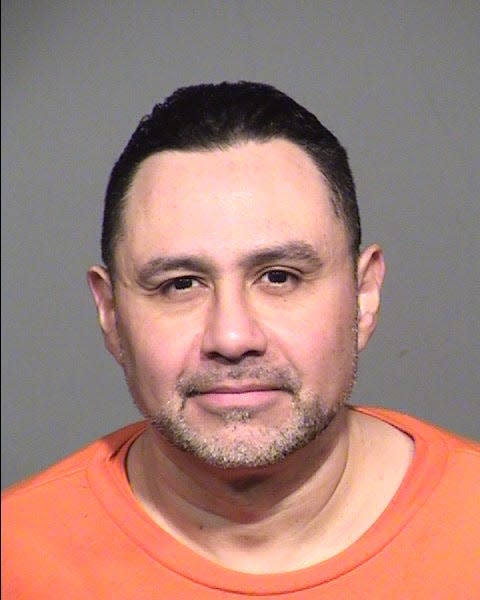Supreme Court sends 6 death row cases back to Arizona courts after Cruz ruling
The U.S. Supreme Court is sending six death row cases back to Arizona trial courts for reconsideration in light of a recent ruling.
The high court on Monday vacated judgments for convicted murderers Johnathan Burns, Steve Boggs, Ruben Garza, Fabio Gomez, Steven Newell and Stephen Reeves. The cases will be returned to the superior courts in Arizona "for consideration," which could take several forms, including parties filing supplemental briefings or the courts issuing new rulings.
Monday's ruling comes after the U.S. Supreme Court last month ruled in favor of John Cruz, who challenged his death sentence because he was not permitted to tell jurors that if he were given a life sentence, it would be without parole.
Three people have already had their death sentences vacated by the Arizona Supreme Court, also because of the Cruz ruling, which relied on a key principle established in a 2016 case, Lynch v. Arizona.
This week, the question before the high court was whether Arizona's courts were "required" to apply the Lynch standards to these six cases after the fact.
The state had argued that the defense team never asked the trial court to instruct the jury they were ineligible for parole, and thus relinquished their right to appeal on that basis. They also argued that the failure to inform jurors never harmed their defense because prosecutors never brought up the key issue of their potential "future dangerousness."
But attorneys for Burns and the other petitioners argued in briefings to the U.S. Supreme Court that federal law trumped the state courts' interpretations.
"It is difficult to imagine a state rule that more clearly discriminates against federal law than the one at issue here. It prohibits state postconviction courts from applying decisions that federal law requires postconviction courts to apply," Burns' lawyers wrote.
Arizona's death row:These are the prisoners awaiting execution
The entire legal debate about this aspect of Arizona's death penalty stems from the 1996 Supreme Court case Simmons v. South Carolina. It set the precedent for defendants to be able to tell juries that they would not be eligible for parole if they were sentenced to life in prison instead of death. But for many years, Arizona refused to apply the ruling.
In the 2016 ruling Lynch v. Arizona, the court made clear the ruling did, in fact, apply to Arizona. The six men who were granted certiorari on Monday sought post-conviction relief in light of Lynch but were denied by the state supreme court. Granting certiorari means the court agreed to review the cases.
After the U.S. Supreme Court remanded the Cruz sentencing, the six men also sought relief, which the high court granted.

Emily Skinner, an attorney with the Arizona Capitol Representation Project, says the Cruz ruling was important because it stated that the Lynch decision was a "significant change" in Arizona law.
"There is a rule of criminal procedure in Arizona that allows conviction petitioners to allege that there had been a significant change in the law that applies to their case," Skinner said. "In Mr. Cruz's case, the Arizona Supreme Court had held that Lynch wasn't a significant change in the law, it was merely a significant change in the application of the law. And so, the relevant Rules of Criminal Procedure did not apply."
Skinner said the Cruz ruling means that now the rules do apply.
Skinner said the Supreme Court granting certiorari to Burns and his co-petitioners is doing justice to ensure that juries are properly instructed on the meaning of a life sentence in Arizona.

She said there are likely many more cases in the pipeline that could also be revisited under Cruz.
"There's a number of people who still have their post-conviction petition pending in the superior court, who may have lost on the Lynch claim, but they haven't made their way up to petition for review yet at the Arizona State Supreme Court."
At least nine people are seeking post-conviction review. Still, as many as 30 capital defendants may be affected by the decision, according to Elizabeth Bentley, director of the University of Minnesota Law School's Civil Rights Appellate Practice.
Attorneys for Burns and his co-petitioners said the state's legal stance on those cases was "nothing short of the nullification of a constitutional right for defendants sentenced to death in Arizona."
This article originally appeared on Arizona Republic: Supreme Court sending 6 death row cases back to Arizona courts

